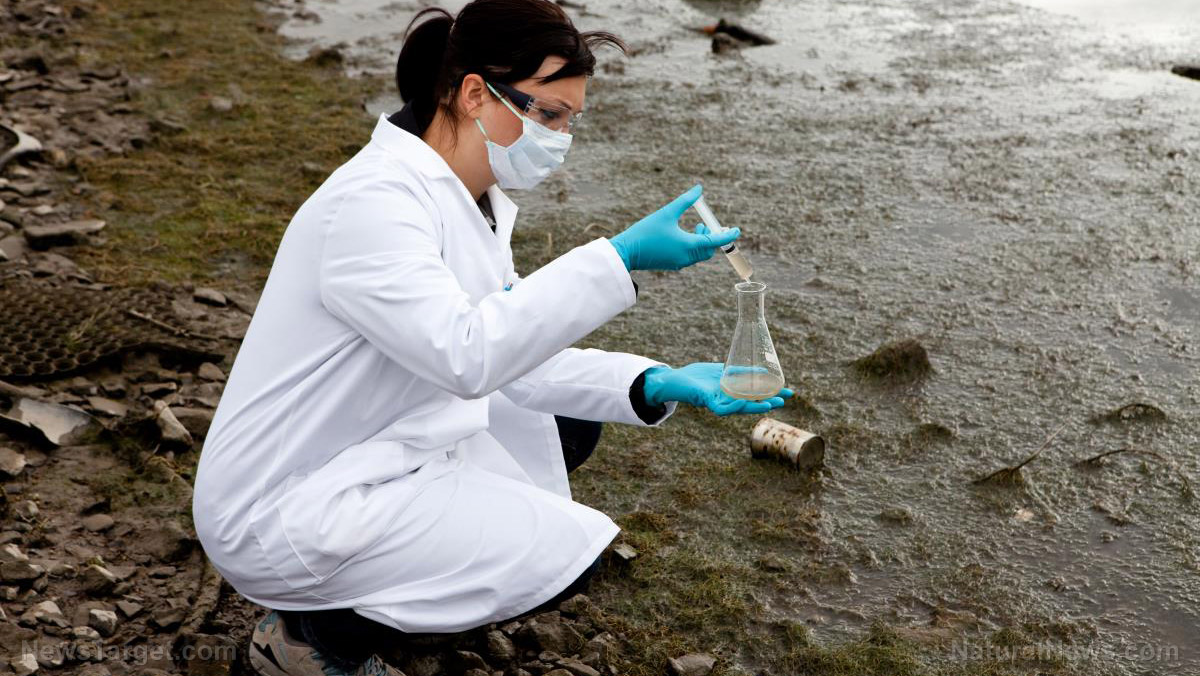More science confirms fluoride exposure damages brains and lowers IQs in newborns
11/08/2017 / By Isabelle Z.

Getting cavities is no fun, but just how far are you willing to go to prevent them? Most people who have had a cavity filled consider regular brushing and flossing to be a small price to pay to avoid repeating the unpleasant experience in the dentist’s chair. However, few would say that they’d be willing to sacrifice their children’s intelligence to lower their risk of cavities.
Unfortunately, that’s the type of trade-off that many American expectant mothers could be making without even realizing it. Fluoride was first introduced to the American public water supply more than 70 years ago, and since then, children and adults alike have noted a 25 percent reduction in cavities. It’s now found in around 75 percent of the water supply however, some areas like Tucson, Arizona and Portland, Oregon have resisted. Nevertheless, the CDC is hoping that 79.6 percent of public water systems will be fluoridated by 2020, and this could be bad news for the intelligence of future generations.
A new study published in Environmental Health Perspectives followed the cognitive development of 300 children and their mothers in Mexico over 12 years. Fluoride is not added to water in Mexico, but people are exposed to it in other ways there, including via fluoridated salt and supplements.
In the study, researchers tracked the levels of fluoride in the urine of mothers and followed up with their children until they reached 12 years old. What they found confirmed the conclusions of many other studies: Exposure to fluoride can lower intelligence. Even after accounting for factors like exposure to other chemicals, a higher prenatal exposure to fluoride was linked to lower cognitive function scores at age 4 and again between the ages of 6 and 12.
Doctors seriously concerned about fluoride in water
New York University Langone Health Pediatrician Dr. Leonardo Trasande said: “This is a very well-conducted study, and it raises serious concerns about fluoride supplementation in water.”
Dr. Trasande, who was not involved in the study, said that the fluoride levels in these mothers were slightly higher than the typical American mother might expect to have from drinking tap water, but they were not exceptionally high. He believes that fluoride’s disruptive effect on thyroid function is connected to its effect on brain development.
Past studies in China have shown fluoride to be a potential neurotoxin. Chronic excessive intake of the chemical can also lead to tooth discoloration and the painful condition called skeletal fluorosis.
While the U.S. Public Health Service says the optimal fluoride concentration level is 0.7 milligrams per liter, the EPA has set 4 milligrams per liter as the limit. However, it is important to note that the link between fluoride and lower IQ in the study started at just 0.5 milligrams per liter in the mother’s urine.
Recently, health, environmental and medical groups have been pressuring the EPA to stop fluoridating the public water supply. The coalition pushing for this action presented them with a petition and 2,500 pages of scientific documentation illustrating the hazards of fluoride.
It remains to be seen if their efforts will lead to any changes. Cavities and tooth decay can be prevented by proper nutrition, curbing sugar intake, and practicing good oral hygiene, so why are we slowly poisoning ourselves and hurting our children’s brain development?
Sources include:
Tagged Under: brain development, brain health, cavities, dangerous chemicals, Fluoride, fluoride in water, intelligence, IQ, Mind, mind body, toxins




















